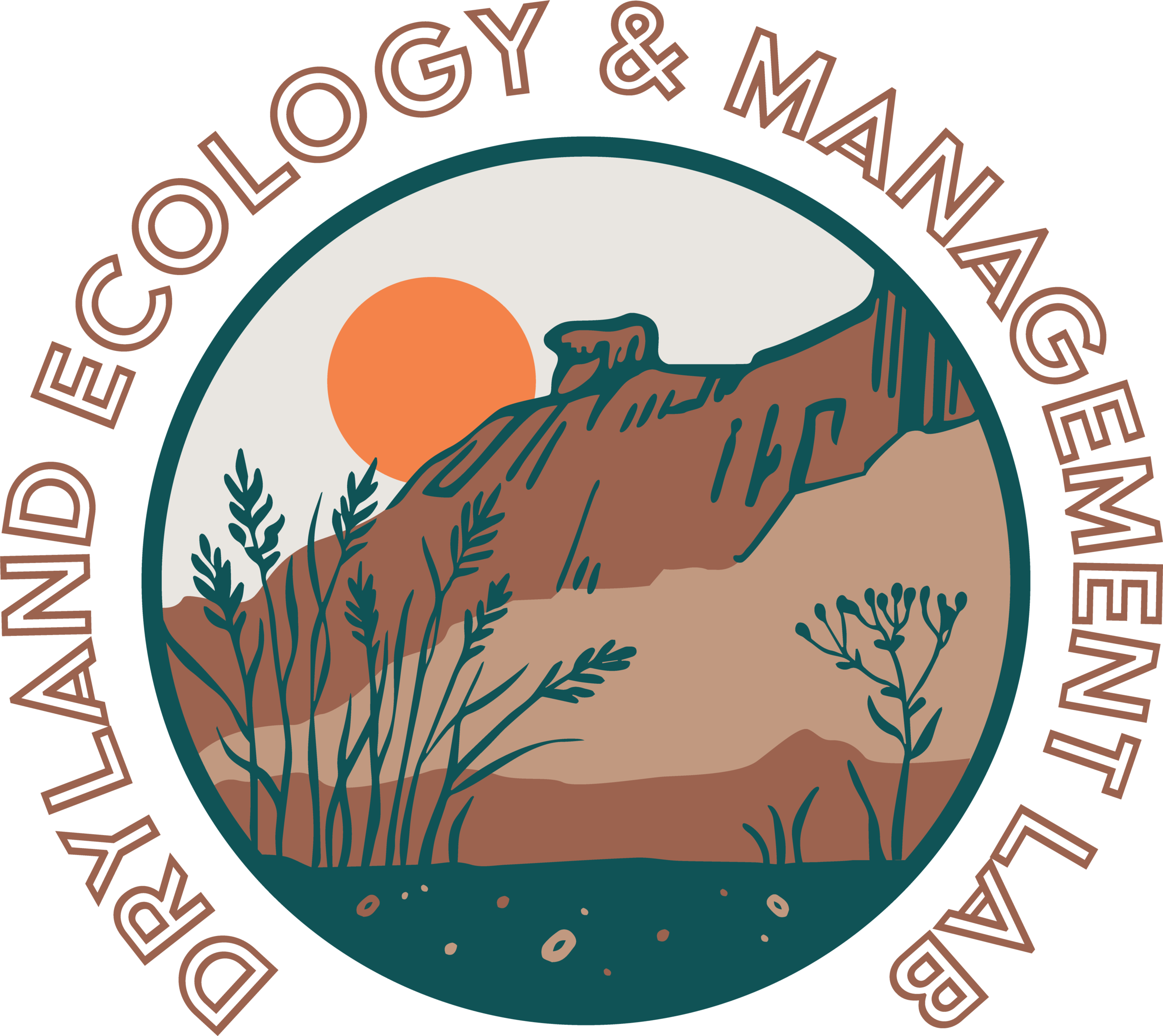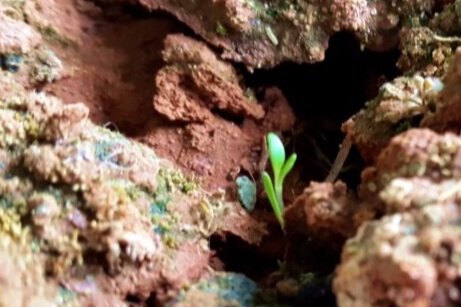Biocrust ecology & remote sensing
About the project
Biological soil crusts ("biocrusts") are microbial communities that dwell on the soil surface in drylands globally. Biocrusts support key ecosystem functions including soil stability, nutrient cycling, and water availability.
We investigate the fundamental interactions between biocrusts and plant performance and other ecosystem functions. We are particularly interested in: understanding how biocrusts interact with plant recruitment and performance, mapping biocrusts with remote sensing to understand biocrust roles in landscape ecology and hydrology, and incorporating biocrusts into dryland restoration efforts.
Major questions
01
How do biocrusts affect the recruitment and growth of vascular plants?
02
Can biocrusts be used to improve dryland restoration outcomes?
03
Can we use novel remote sensing methods to improve biocrust ecology and management?
What we’ve found
Biocrusts and plant traits interact.
Biocrust effects on plants vary depending on plant traits including functional traits and origin. In some contexts, biocrusts can pose barriers to exotic plant recruitment. Seed traits can predict the effects of biocrusts on plant recruitment.
Biocrusts can promote seeding success.
Biocrust inoculation can increase native seedling recruitment and growth during dryland restoration projects.
Technology offers new & effective methods.
Low-cost, high resolution drone imagery can successfully be used to detect and classify different types of biocrust communities and improve inclusion of biocrusts in models of dryland ecosystem processes.
Featured publications
Collaborators
Miguel Villarreal, USGS Western Geographic Science Center
Collaborator on biocrust remote sensing projects.
Biocrust JWPC Working Group
Much of the recent work we’ve completed on biocrusts has been done in collaboration with John Wesley Powell Center for Analysis and Synthesis Biocrust working group members including Anita Antoninka (NAU), Nichole Barger (CU Boulder), Jayne Belnap (USGS), Matthew Bowker (NAU), Bala Chaudhary (Dartmouth), David Eldridge (UNSW), Akasha Faist (NMSU), Scott Ferrenberg (NMSU), Elizabeth Huber-Sannwald (Instituto Potosino de Investigación Científica y Tecnológica), Fernando Maestre (University of Alicante, Spain), Sasha Reed (USGS), Bettina Weber (Karl-Franzens-Universität Graz), Yuanming Zhang (Chinese Academy of Sciences, Beijing), and Yunge Zhao (CAS, Beijing)









